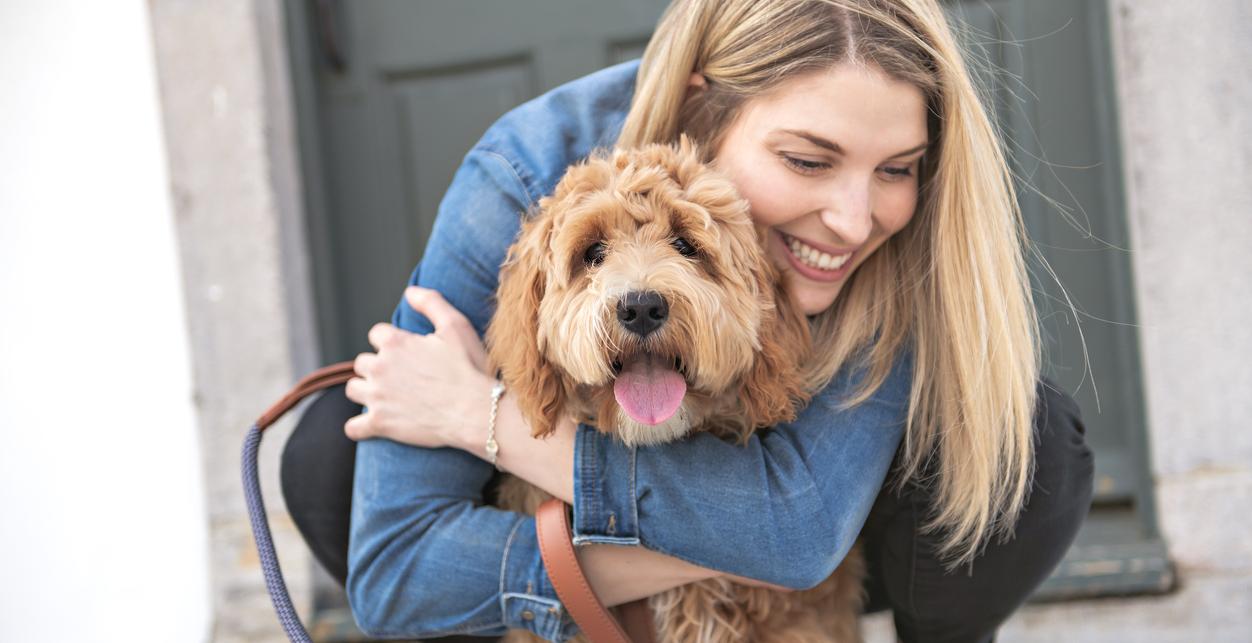Budgeting For Pets
Owning a pet can be a rewarding experience, but with their cute eyes and tail wags, comes a rather large financial commitment. Whether you buy from a breeder, adopt from a shelter, or take in a stray, the initial costs you pay to bring your dog or cat home is only the beginning. Before inviting a new four-legged friend into your family, take a look at your budget. (Need help creating a budget, check out our budgeting resources including financial worksheets and tools within Online Banking.)
Our team of pet lovers took a poll and these were some of the most common expenses we could come up with.
Initial costs.
The first expense you’ll encounter will be the adoption fee or purchase price. If you plan to purchase from a pet store or breeder, make sure you have done your research and go with a reputable breeder. Remember to consider that the price is typically influenced by how high the demand is for a certain breed. The price to purchase from a breeder can range from a few hundred to a few thousand dollars.
Adopting from a shelter, on the other hand, covers a variety of expenses upfront. Many shelters and rescues will microchip, provide medical and heartworm care, and in some cases spay and neuter animals before sending them away with their new family. The cost of all this care can be upwards of $800, but shelters rarely ask for the adopters to pay this much. The cost to adopt an animal from a shelter or your local rescue can range from $50-$500. If you’re considering adoption, check to see if your local shelters are running an adoption special. You may get lucky and be able to adopt your next pet for much less than you originally expected.
Medical costs.
Medical costs are, without a doubt, the most expensive part of owning a pet. The average vet visit can range from $50 to $400. Preventative care such as vitamins, dental care, flea and heartworm treatment, rabies vaccines can range from $350-$600 per year.
It’s easy to plan to save for upcoming vet visits, but sometimes you may have to make unexpected trips to the vet for emergency treatments. If your new friend injures themselves, an unexpected trip to the vet can cost upwards of $1,400.
Food costs.
Pet food will take away a good bit of your budget. A bag of cat food could cost you around $20. While a bag of dog food can range from $20-$60. The size of your pet will determine how much and how often you will need to buy food.
Training costs.
Training your new pet may be optional, depending on the animal and your own experience. For example, most cat owners won’t need to pay for training because most cats don’t require it. However, with dogs, you have two options: pay for training or train the dog yourself. If you’ve owned a dog before, then training on your own is a good cost-saving option. If you haven’t had a dog, training classes may be something to consider. Dog training classes can range from $200-$1,250.
Additional costs.
Additional costs will vary from person-to-person depending on your situation and pet. Something to consider is whether or not you will need to fence in your backyard. If so, you’re looking at well over $1,000 on average. On the other hand, if you opt for an indoor pet, you’ll probably only need water and food bowls and a few toys.
Dogs are pretty easy to care for, other than lots of attention and time, there are only a few things dogs truly need, a food and water bowl, a leash, and a crate. Other than that, most supplies for dogs could be considered a luxury. Items such as food and water bowls, a leash, crate and toys can cost around $350 per year.
Cats, for the most part, will entertain themselves. Although cats don’t require toys, it can be pretty entertaining to watch your cat play with them. Altogether for food and water bowls, toys, a scratching post, bed, and a carrier you’re looking at around $80.
Before deciding to welcome a new pet into your family, take a look at your finances and budget in the added expenses of a pet. It may help to set up a designated checking account or savings account for pet-related expenses. As you can see, owning a pet can be expensive, but if you budget and are prepared to take on the extra work, it might just be worth it to have a furry four-legged friend to come home to.
*AllSouth strives to keep its information accurate and up to date.

